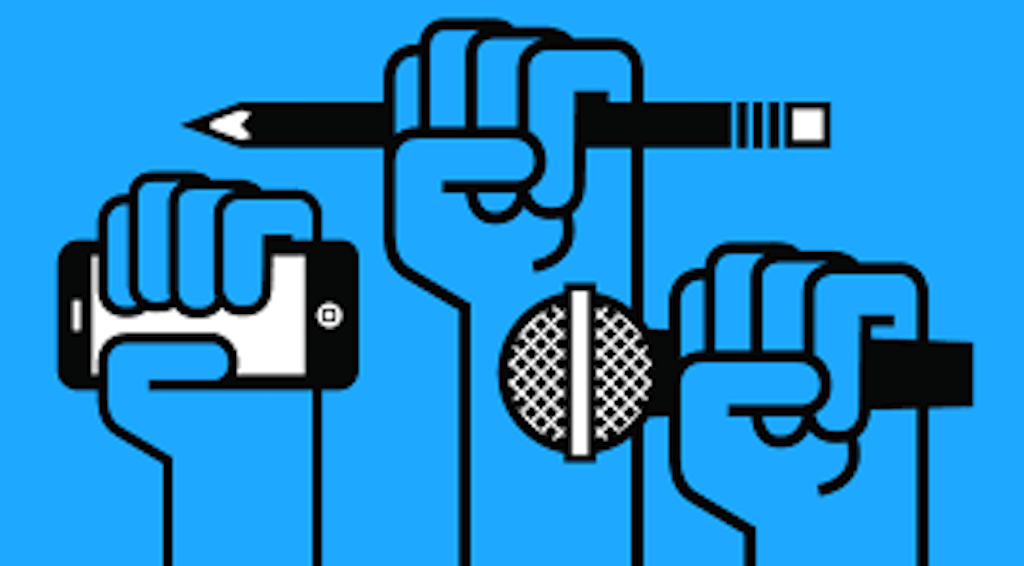
…a free press plays a crucial watchdog role that needs to be protected in society. Only a free press can ensure the people’s access to the information necessary in building a well-informed, transparent and accountable society. The press, on its part, is generally cautioned to desist from situations capable of leading to the misuse of its freedom and oversight powers.
A few weeks into 2017 and already three Nigerian journalists have faced harassment from Nigerian law enforcement. The way Nigeria is handling cases pertaining to journalists is raising concerns about press freedom in Africa’s biggest democracy. The last one-year has seen the forcible intimidation of over 30 journalists, including major cases such as the arrest of 10 journalists on September 20, 2016 for possession of “sensitive election materials”, in the words of the army spokesperson, Col. Sani Usman.
Another case is that of Emenike Iroegbu, publisher of Abia Facts newspaper, who was arrested in September 2016, in front of his family, with no explanation from law enforcement. He was later accused of the defamation of important personalities, including that of the governor of Akwa Ibom State.
Press freedom is essential to any democracy; it denotes an atmosphere in which media professionals can work and publish what is true and factual, without fear, coercison or intimidation. The freedom of the press is an important precondition of any free society. The press has been called the fourth pillar of the state and newspapers are regarded as the people’s parliament, serving as a watchdog of the government. However, the Nigerian government and powerful individuals create obstacles to this freedom because it poses a challenge to their abuse of power, corruption and other official misdeeds.
The case of Jamil Mabai, a Nigerian blogger from the North-Western state of Katsina was arrested by the Nigerian Police for simply condemning the Katsina State governor for the purchase of metal coffins with state money, which was to be distributed in mosques. The blogger pointed out the failure of the state to pay its civil servants but yet its ability to buy 3000 coffins at N40,000 each. During his arrest, he tweeted that another social media activist, Bashir Dauda was also in police custody.
According to the Committee to Protect Journalist (CPJ), since 1992, 10 Nigerian journalists have been killed with the clear motive of suppressing their voices, while another nine were murdered in unclear circumstances. CPJ’s Global Impunity Index also reveals that 14 other Nigerian journalists were assasinated between September 2005 to August 2015 in the country, with their killers still at large or allowed to go scot-free.
While the claim by the Buhari Administration not to have had any thing to do with the lives of journalists might be true, yet CPJ’s West Africa representative, Peter Nkanga, told Africa Check that Buhari’s claim that the current government has not harassed any journalist “is far from the truth.”
In November 2015, officers of the Nigerian Prisons Service and other people reportedly beat Vanguard newspaper journalist Emmanuel Elebeke at the high court in Abuja, after he took pictures of three murder suspects on trail.
Another incident, under the Buhari Administration, involved Road safety officials demanding the phones of Nnamdi Ofonye of Silverbird TV and Tope Kuteyi of Channels TV, accusing them of having filmed a video of them arguing with a motorist.
When they refused, armed civil defence officers were called in to arrest them, also taking Obioma Oburuoga of Africa Independent Television into custody, while reportedly punching, slapping and kicking the journalists.
This sort of behaviour should not be tolerated as a free press plays a crucial watchdog role that needs to be protected in society. Only a free press can ensure the people’s access to the information necessary in building a well-informed, transparent and accountable society. The press, on its part, is generally cautioned to desist from situations capable of leading to the misuse of its freedom and oversight powers.
Aisha Hashim is a Project Officer with Premium Times Centre for Investigative Journalism (PTCIJ).
PremiumTimes
END

Be the first to comment